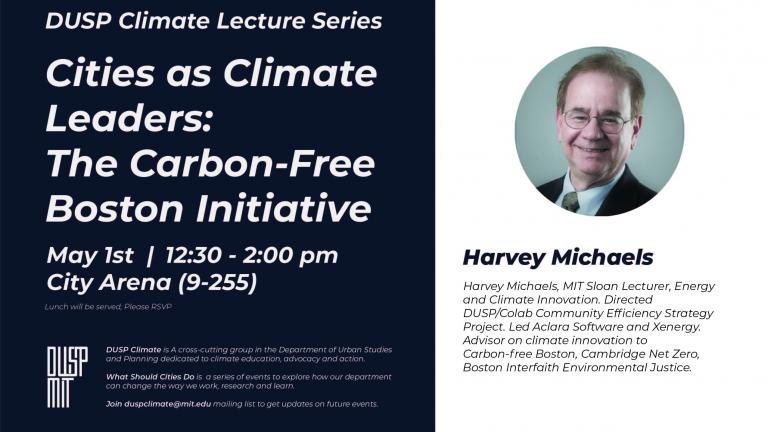
On May 1th, 12:30-2:00 in 9-255, Harvey Michaels will speak about ‘Cities as Climate Leaders: The Carbon Free Boston Initiative’.
Harvey Michaels, MIT Sloan Lecturer, Energy and Climate Innovation. Directed DUSP/Colab Community Efficiency Strategy Project. Led Aclara Software and Xenergy. Advisor on climate innovation to Carbon-free Boston, Cambridge Net Zero, Boston Interfaith Environmental Justice.
RSVP here:
https://www.eventbrite.com/e/cities-as-climate-leaders-the-carbon-free-…





